Resources
What is Food Urbanism?
Upcoming events
You don't have access to any upcoming eventsSearch
Support

- FUI is supported by a grant from the Swiss National Science Foundation under the National Research Programme NRP 65 "New Urban Quality"
Typology >Surface urbaine cultivée
Description
Ces terrains sont des héritiers des cultures agricoles, leur surface a fortement diminuée sous la pression immobilière. Ils restent une source non négligeable de production au coeur des villes. La diminution consécutive de la taille des exploitations a forcé les différents producteurs à se spécialiser dans des cultures plus rentables (marché de proximité, culture maraîchère).
Contexte urbain
La présence dans les villes de surfaces cultivées permet de mettre en relation directe la production et les consommateurs. Recréant ce précieux lien, ces surfaces jouent en plus d’un rôle social, un fort rôle pédagogique. La proximité avec la population expose aussi ce genre de culture à des dégradations et diverses incivilités. Elles sont principalement dominées par une végétation dite pionnière, qui laisse avec le temps place à une végétation plus stable et plus variée. Ces surfaces de production apportent une certaine diversité végétale à la palette urbaine. Cependant, les différentes constructions et la végétation alentour risquent de créer des zones ombragées qui peuvent péjorer la productivité des terrains.
Composante environnementale
Surface déjà affectée à une culture.
Relation directe entre les consommateurs et les producteurs.
Apporte une diversité végétale au sein des villes.
Terrain directement lié aux infrastructures.
Possibilités
Possibilités de mise en place de systèmes de distribution alternatifs.
Forte visibilité, appropriation par les habitants.
La visibilité moindre est propice à des initiatives spontanées.
Contraintes
Directement liée aux différentes pressions urbaines (immobilier, dégradation, vols, etc.).
Surface de culture limitée, augmentation des surfaces quasi impossible.
Surface soumise à la pollution urbaine.
Création de ce type de surface difficile (normes, pressions urbaines.)
Where do your vegees come from ?
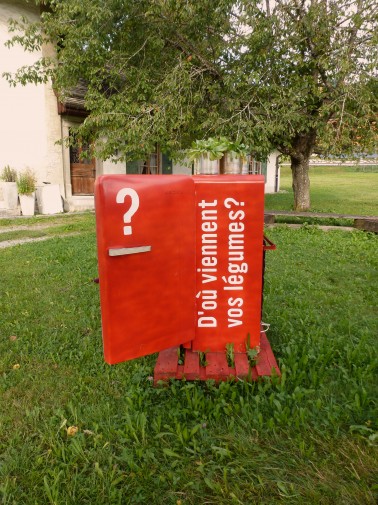
Where do your vegetables come from? In big cities people tend to forget where and how food is produced. The installation was an effort to bring together food consumption and production in a simple direct way. The aim of the …
+ read more
MULTIFUNCTIONAL AGRICULTURE

My Master Thesis in Urban Agriculture_Roma Tre University a.a.2012/2013
The thesis develops a research project in Rome suburbs and it takes account of an area where is expected the edification of 2 new neighborhoods for 4500 inhabitants.
We asked ourselves …
+ read more
Chamard châtelard, Yverdon-les-bains
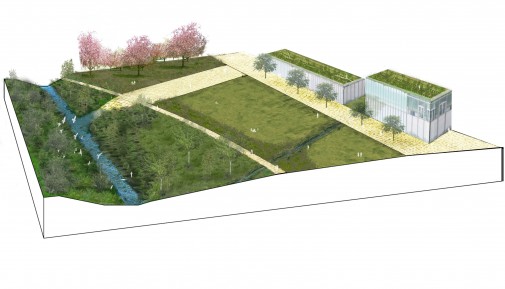
Suite à l’abandon du projet de canal Rhin-Rhône, et la disponibilité consécutive de larges espaces auparavant réservés, Agglo y a lancé un MEP visant à définir les conditions d’aménagement de ce secteur partiellement bâti situé aux portes de la ville, …
+ read more
Les Parties, Yverdon-les-bains
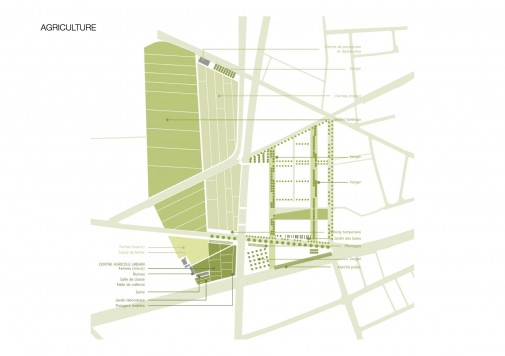
L’équipe pluridisciplinaire pour Les Parties, pilotée par Urbaplan avec la participation de VWA pour la thématique paysage, a abordé l’urbanisation d’un espace actuellement agricole, pris entre la frange urbaine existante et le viaduc. Le programme prévu pour ce secteur inclut …
+ read more
Centrale de biométhanisation de la ville de lausanne et cuisine froide du CHUV

Une usine de biométhanisation (30’000m2) et une cuisine de préparation d’aliments froids pour le CHUV sont projetés au sein du périmètre «Coeur du P.A.R.C.» du parc d’agglomération de la Blécherette, plus précisément à proximité de la ferme de Cery. La …
+ read more
schéma directeur du nord lausannois (sdnl), chantier 4a
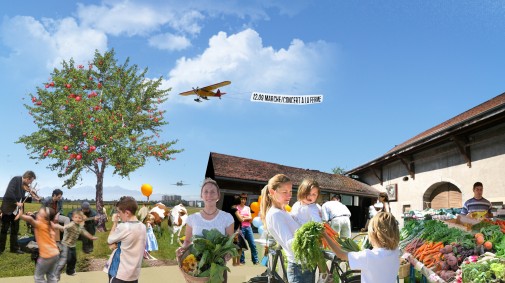
Le chantier 4a du SDNL, portant sur les «Stratégies de préservation et d’évolution de la nature et du paysage», appelle à émettre des propositions générales pour l’entier du périmètre du secteur ainsi qu’une vision plus concrète pour sa partie sud …
+ read more
ParcFertile – Winning Entry for Urban Farm Park Competition in Bernex
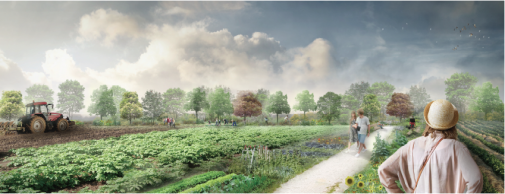
ParcFertile, a submission by Verzone Woods Architects in Rougemont, Switzerland, has won the international competition to build an urban farm park on about 9 hectares of land in Bernex, Switzerland.
The farm features a variety of production types, including vegetables, …
+ read more
21 acres Community agriculture center

21 Acres is a non-profit organization with a vision to create and operate a vital, open public space for everyone to rediscover the agricultural heritage of Washington region and learn about cutting-edge, sustainable agricultural design and technologies as well as …
+ read more
The “Private Garden Plot Act” in Russia

In 2003 the Russian President signed into law a further “Private Garden Plot Act” enabling Russian citizens to receive free of charge from the state, plots of land in private inheritable ownership. Sizes of the plots differ by region but …
+ read more
Cittaslow UK
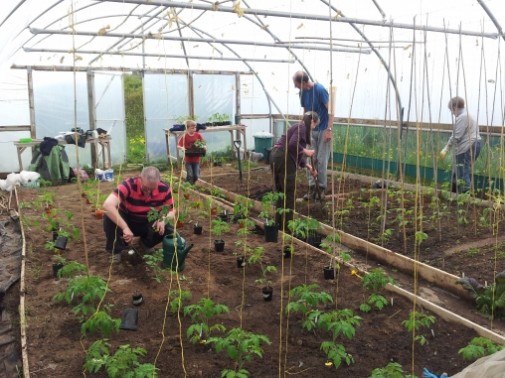
Cittaslow towns describe themselves as unique, vibrant and prosperous. There’s an art to improving the quality of life in a town; a way in which the community comes together for the common good that generates a passion felt by residents …
+ read more
Camden city Garden Club, Inc.
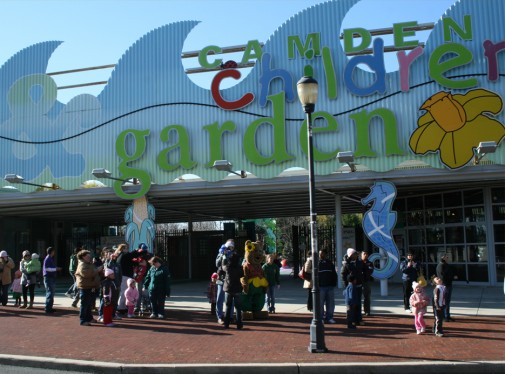
The Camden Children’s Garden is designed for children and families to explore and discover the natural world.
The Club is a non-profit environmental and educational organization, originally formed for the purpose of assisting Camden City residents with community gardening. The …
+ read more
Agromere

The city of Almere (30 km east of Amsterdam) has to double in size (190,000 towards 350,000 inhabitants) over the next 20 years. This summer Almere launched its plans for this so called ‘Scale Jump Almere 2030′ (Almere 2.0). East …
+ read more
Vivero Organoponico Alamar
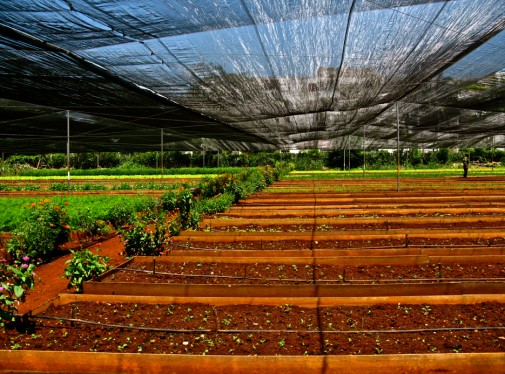
The central part of this cooperative endeavor is built from recycled materials: wood, tin roofing, hand painted signs and one building with windows that clearly came from a bus. Eighty tons of food per acre are produce on the site …
+ read more
“Urban Agricultural Technicians”
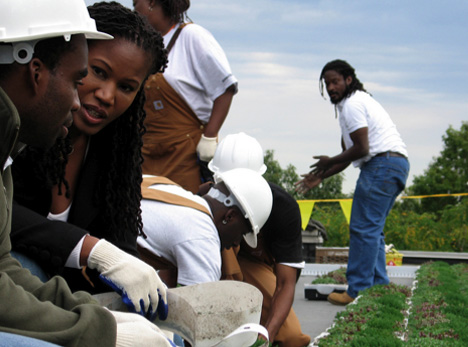
Environmental and urban planning advocate Majora Carter advises cities, foundations, universities, businesses, and communities around the world on unlocking their green-collar economic potential to benefit everyone. In 2001, she founded Sustainable South Bronx to achieve environmental justice through economically sustainable …
+ read more
Edible Park, City Farm Herweijerhoeve, Zuiderpark

The project is part of the Hague city farm Herweijerhoeve in the Zuiderpark and the Amateur Market Gardener’s Association ‘Nut en Genoegen’. Permaculture is used although the goal is primarily educational and artistic. The public is encouraged to interact with …
+ read more
Dongtan Eco-Project
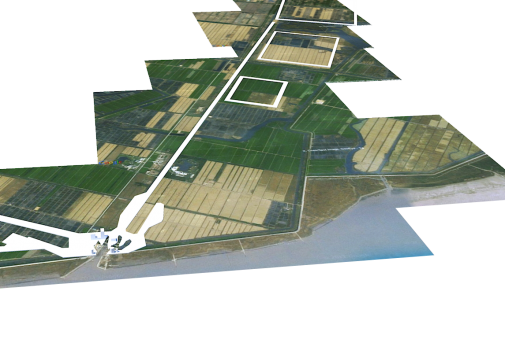
The newly designed city responds to an intense urbanization of the rural population. Planned double-decker organic farms replaces agriculture lost to building. All waste is recycled for agriculture or energy. In some cases former agricultural land will be returned to …
+ read more
Greensgrow Farms
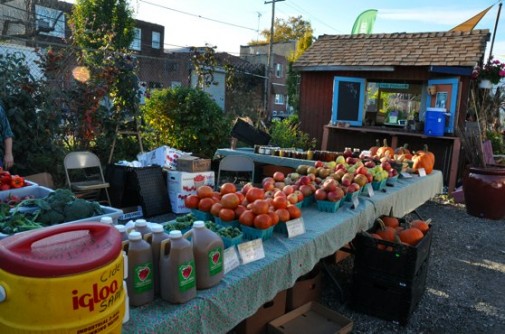
Encompassing a entire city block in North Philadelphia’s gridded urban layout, Greensgrow Farm is situated on the former site of a galvanized steel plant which is designated as a brownfield site by the United States Environmental Protect Agency. The farm …
+ read more
Central Park, Nangan, Matsu Islands
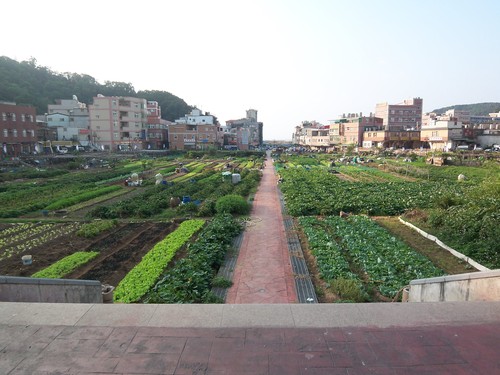
The island is part of the democratic entity in Lienchiang County of the Fujian Province of the Republic of China (ROC). The government gave the local government the ability to create their own central “square”. The town and citizens decided …
+ read more
City Slicker Farms

City Slicker Farms is a network of seven farms that operate to provide greater food security by distributing fresh produce on a donation-only basis to the community. The largest of the farms is 1.4 acres and houses farm beds, orchards, …
+ read more
44th Street Organiponico
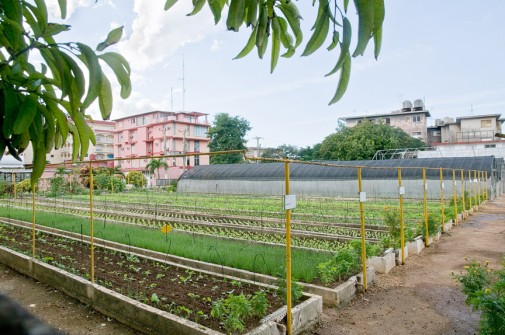
Situated in concrete raised beds in an old parking lot, the 44th St. Organoponico garden fertilizes the soil using worm compost and magnetizes the water to reduce the build up of minerals in the beds. They use plants such as …
+ read more
Ottawa Greenbelt
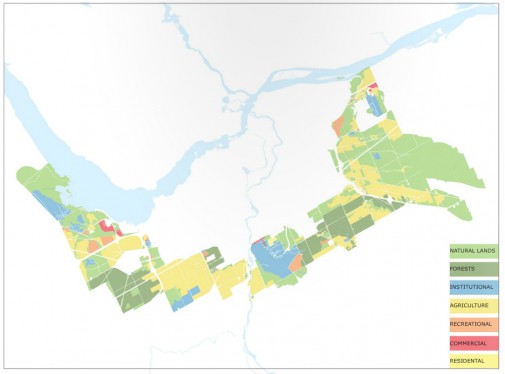
The Ottawa Greenbelt is primarily owned by the National Capital Commission (14,950 acres) along with other public and private agencies. Farming, forestry, research and the airport make up its primary “economic contributions”. Yet recreation, wildlife habitat, open space and ecological …
+ read more
Bieslandse Boven Polder

Jan Duijndam manages his organic dairy farm on a historic polder while at the same time managing a natural preserve and wetlands. Recreation is woven around all functions. The Bieslandse Polder was once rural land but is now bordered by …
+ read more



